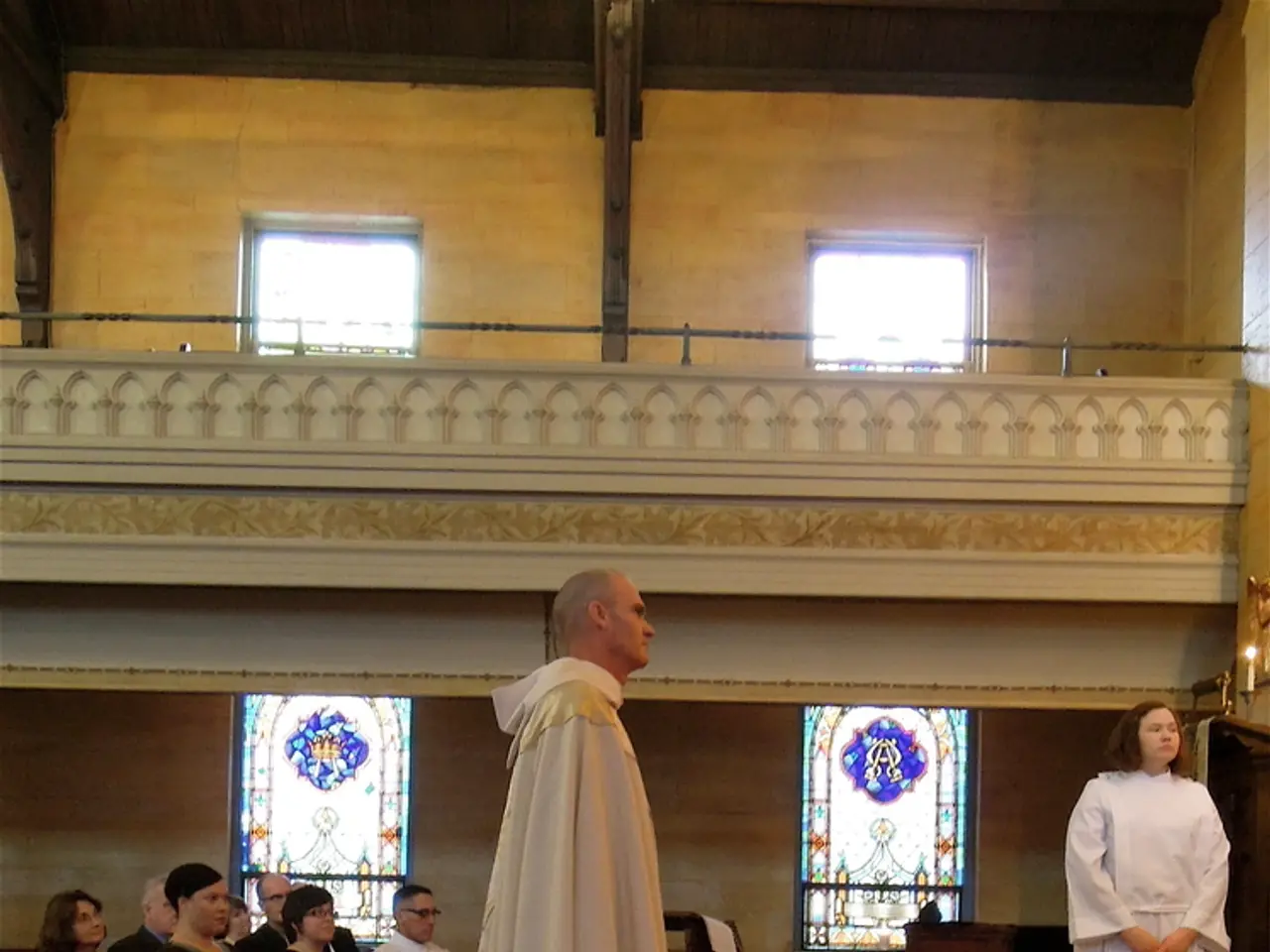Austrian 'Nuns on the Run' Incident Spotlights Struggles of Aging, Shrinking Religious Orders
In the picturesque countryside near Salzburg, Austria, a historic monastery, Schloss Goldenstein, has once again become a sanctuary for three elderly Augustinian nuns. After being relocated to a nursing home against their will, the nuns have returned to their longtime monastery, much to the delight of their former students and supporters.
Since 1877, Schloss Goldenstein has housed a convent and a private girls' school, now a co-educational facility. The monastery, originally a castle, has been used by Benedictine and Augustinian religious orders since the 18th century.
The relocation of the Goldenstein nuns was a result of Vatican regulations regarding aging members of dwindling religious congregations. When religious orders become too small or their members reach a very advanced age, the Vatican's Ministry for Orders appoints a superior. In this case, Provost Markus Grasl was appointed superior by the Vatican.
The nuns were placed under the authority of the President of the Federation of the Augustinian Choir Sisters in Germany and Provost Markus Grasl. The Reichersberg Abbey, which Provost Grasl leads, adheres to the same Augustinian spirituality as the Goldenstein Augustinian Choir Sisters.
However, the decision to relocate the nuns sparked controversy. On August 18, Provost Grasl defended the relocation, stating it was made for the well-being of the nuns and out of concern for them. He cited the nuns' advanced age, precarious health, the spiritual needs of the order, and the structural condition of the monastery as factors in the decision.
The nuns, however, felt differently. They told Kronen Zeitung in August that they were 'shipped off' to the Kahlsperg Castle senior home. Fortunately, they have now returned to their beloved Schloss Goldenstein, where volunteers are helping them with meals, fellowship, and medical care.
One former student of the nuns, Sophie Tauscher, said, 'Goldenstein without the nuns is just not possible.' She added, 'When they need us, they just have to call us and we will be there for sure. The nuns here changed so many lives in such a good way.'
The return of the nuns also highlights the challenge faced by church officials in providing responsible retirement provision for religious women and men, as many have achieved much over decades but are now old and few in number. In 2018, the Vatican's Congregation for Institutes of Consecrated Life and Societies of Apostolic Life issued 'Cor Orans,' implementing Pope Francis' 2016 apostolic constitution on women's contemplative life, 'Vultum Dei Quaerere.'
As the nuns settle back into their home, the future of Schloss Goldenstein remains uncertain. Yet, one thing is clear: the community is grateful for the return of these beloved nuns and the impact they continue to have on the lives of those around them.





